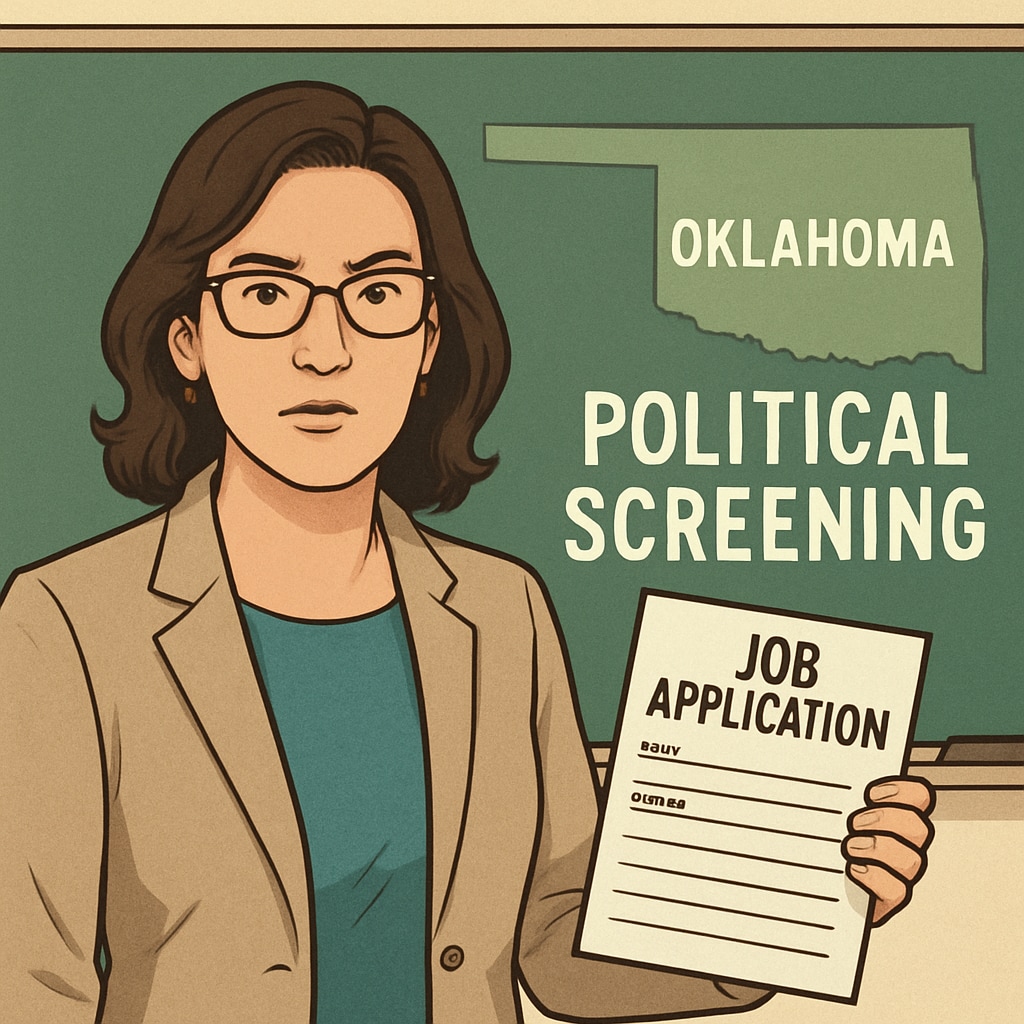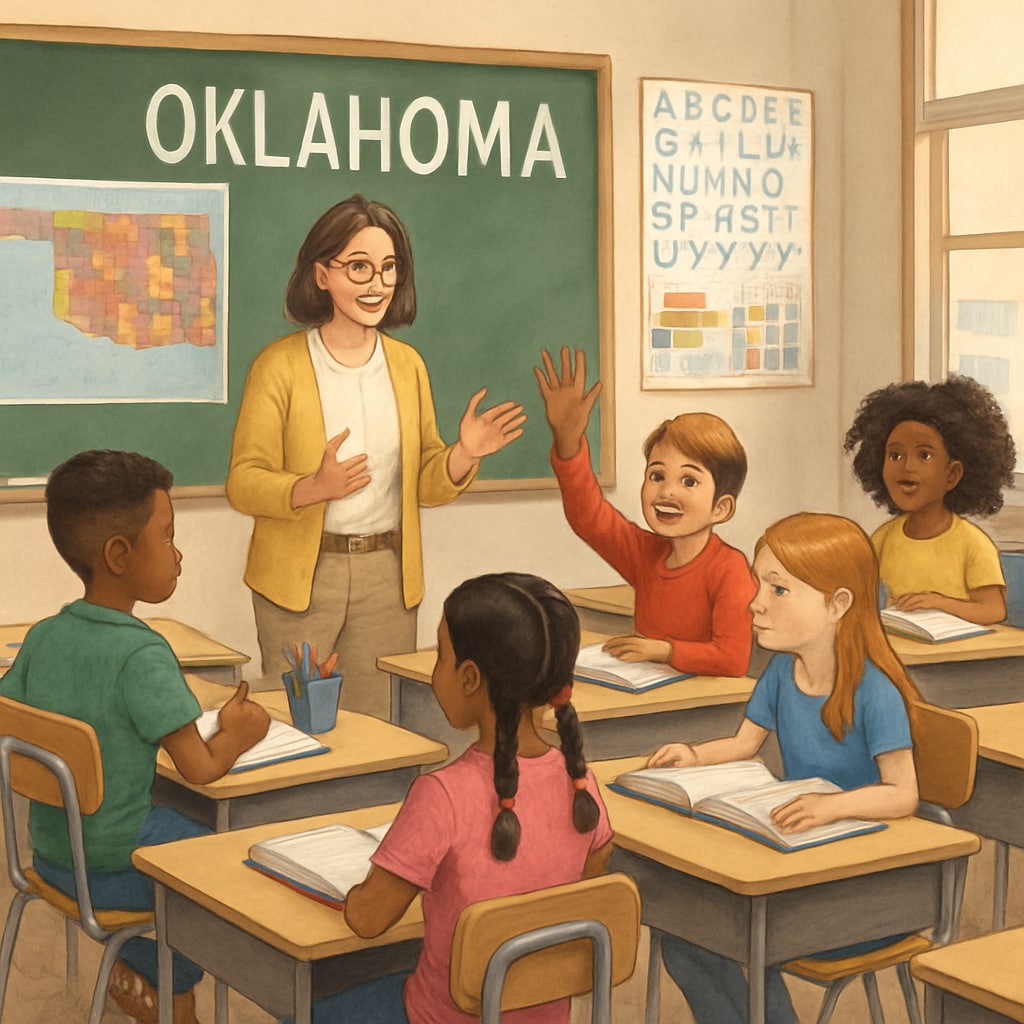Oklahoma’s recent decision to implement political screening for out-of-state teacher applications has ignited debates across the education sector. This controversial policy, which reportedly assesses applicants based on their political attitudes and beliefs, has raised questions about its impact on education quality and professional freedom. Is this approach a genuine effort to protect students, or does it risk alienating qualified educators?

Why Political Screening in Teacher Applications?
The introduction of political tests for teachers applying from other states in Oklahoma has left many questioning its intent. Officials behind the policy argue that it ensures educators align with the state’s values and commitment to patriotic education. However, critics contend that such measures blur the line between professional qualifications and personal beliefs. For example, a teacher’s ability to educate students effectively should not depend on their views on government policies or social issues.
According to sources like Britannica’s entry on education, the primary goal of education is to foster critical thinking and provide unbiased knowledge. Policies that prioritize personal ideologies over professional competence may undermine this goal. In addition, concerns about discrimination and exclusion are on the rise, as teachers with differing political views may feel unwelcome or unfairly judged.
The Potential Consequences for Education
Implementing political screening in teacher applications could have far-reaching consequences for Oklahoma’s education system. First, it risks creating a homogenous teaching force where diversity of thought is stifled. Students benefit from exposure to educators with varied perspectives, which promotes critical thinking and a broader understanding of the world. Without diversity, there is a chance that students may receive a biased or one-sided education.
Second, such policies might deter talented educators from applying to work in the state. Teachers often choose where to work based on professional growth opportunities and supportive environments. Restrictive policies like political testing could send the message that Oklahoma prioritizes political conformity over educational excellence.
As a result, Oklahoma may struggle to fill teaching vacancies—a challenge already faced by many states due to nationwide teacher shortages. According to Wikipedia’s page on teacher shortages, recruitment difficulties can severely impact student performance and school operations.

Striking a Balance: Education vs. Ideology
Finding a balance between maintaining educational standards and respecting personal freedoms is crucial. While states have the right to establish policies that reflect their values, these measures should not infringe on individual rights or professional integrity. Instead of screening political beliefs, states could focus on ensuring that teachers meet academic qualifications and demonstrate a commitment to unbiased instruction.
One potential solution is implementing professional development programs that train educators to navigate sensitive topics without imposing their personal views. For example, workshops could focus on teaching critical thinking skills and fostering respectful debates in classrooms. Such initiatives would empower teachers while maintaining the neutrality of the education system.
Additionally, open dialogues between policymakers, educators, and the public can help address concerns and refine policies that benefit all stakeholders. Listening to teachers’ perspectives and considering the diverse needs of students are essential steps toward building an inclusive and effective education system.
Conclusion: A Policy in Question
Oklahoma’s decision to introduce political screening for teacher applications raises important questions about the role of personal beliefs in education. While the policy seeks to align educators with state values, it risks alienating qualified professionals and compromising educational diversity. Moving forward, policymakers must consider the long-term implications of such measures and strive to create a system that values both academic excellence and individual freedom.
Ultimately, education should aim to inspire students, foster critical thinking, and prepare young minds to engage with diverse perspectives. By prioritizing these goals, Oklahoma—and other states—can ensure a future where education remains a tool for empowerment rather than division.
Readability guidance: The article uses concise paragraphs and clear transitions to maintain engagement. Lists are utilized to highlight key points, and complex ideas are simplified for broader accessibility. Overuse of passive voice and lengthy sentences is avoided.


